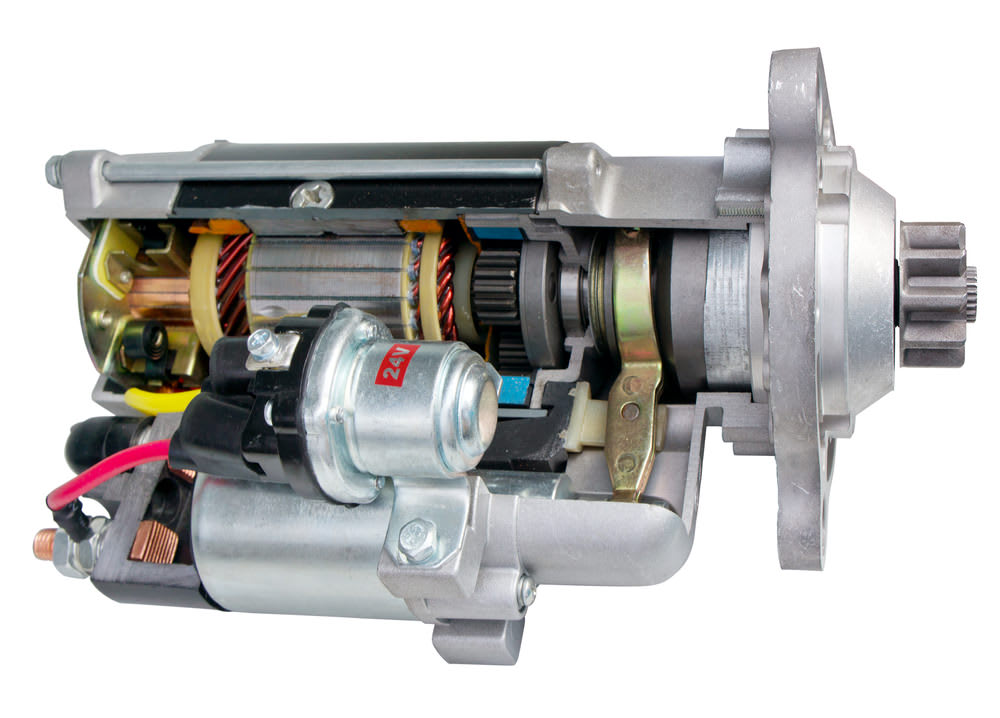

A car starter is a powerful electric motor that cranks your engine in order to start your car. The starting system consists of the motor itself, and the attached solenoid. The solenoid is what takes battery power and delivers it to the starter motor. It also pushes the starter gear forward, allowing it to mesh with the gear teeth of the engine’s flywheel.
A high current is needed to start your car, so your battery has to have enough “juice” to enable the car starting system to work properly. Most of the time, when a car won’t start and the battery is fully charged, the starter motor is to blame. Starters do wear out. Let’s talk about some common car starting problems, some of which are related to the starter.
The starter cranks but the car won’t start
This might not be a starter problem. Most of the time, this is due to battery failure. Perhaps you left a light turned on, which caused the battery to drain. If the battery doesn’t have enough charge, you might hear clicking, or the starter might turn over slowly and then finally stop. You could have poor connections, corroded battery terminals, or simply a bad battery. Before you inspect the car starter, check your battery.
However, it could still be the starter. Sometimes, the control terminal becomes corroded or a wire comes loose. If this happens, you can disconnect the control wire (if it hasn’t already become disconnected and is the source of the problem), clean the terminal, and replace the wire.
You have to jiggle the key to start the car
Chances are you have a bad ignition switch. You turn the key to the “start” position, but you’re not consistently getting current to activate the solenoid. This is a common problem, caused by the contact points in the ignition switch wearing out. The ignition switch will need to be replaced.
Car starts in neutral, but not in park
The neutral safety switch in your vehicle prevents the car from operating unless the vehicle is in neutral or park, or in the case of a manual transmission, when the clutch is depressed. If the car starts in neutral but not park, the problem isn’t in the car starter system – you have a faulty neutral safety switch.
Lights go dim when the car is started
First check your battery. Dim lights when the key is turned to “start” often indicate that there’s a problem with the battery. If you test your battery and find that it’s fully charged, the problem could be with the car starter control circuit. It could be in the control wire, the starter relay, ignition switch or neutral safety switch.
Finally, as we’ve said, sometimes starters simply go bad. This can be due to worn brushes, bad bearings, and various other problems, many of which will require the services of a mechanic to properly diagnose. A certified mobile mechanic from YourMechanic can diagnose and repair your starter at your home or office.



